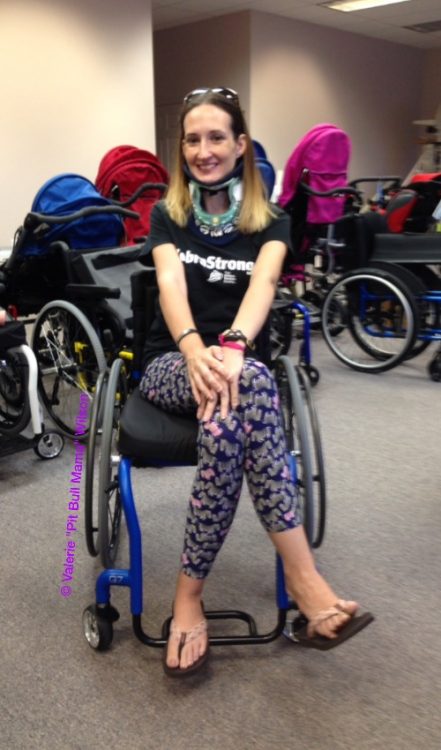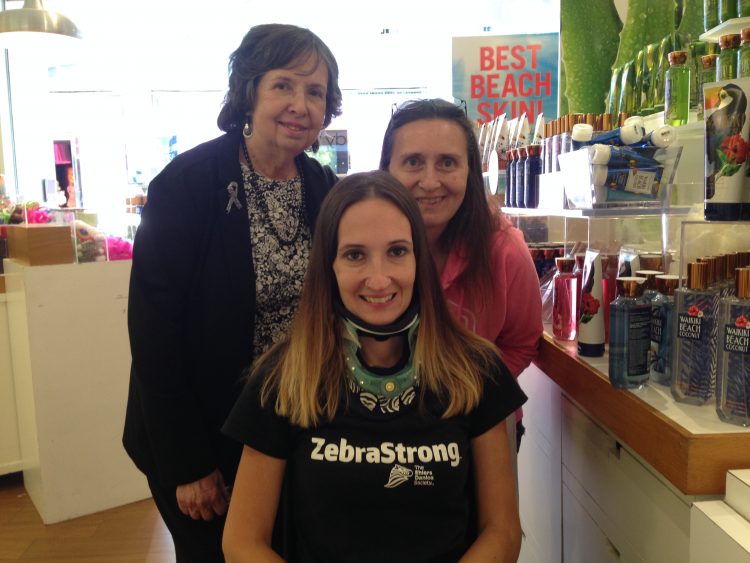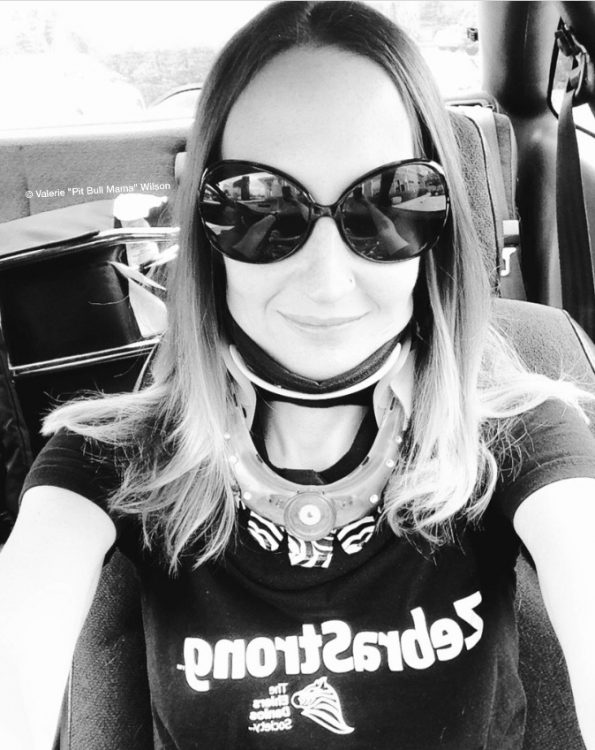How Ehlers-Danlos Syndrome Has Altered My Sense of Independence
Growing up as a little girl, in my small town, I had dreams of becoming a vet tech. I wanted to be that helpful person who not only helped animals, but helped their owners to be able to better understand them and therefore be better at caring for them. I loved working with animals. I loved the challenge of veterinary medicine and how rewarding it was. I had also been involved with the rescue of many animals and advocating for their welfare, especially pit bulls, as I volunteered with pit bull advocacy groups and rescues for many years.
• What is Ehlers-Danlos Syndrome?
• What Are Common Ehlers-Danlos Syndrome Symptoms?
For 15 years I worked that dream job and I was able to volunteer for many years as well. That was, until, after many surgeries for my endometriosis which caused me to miss lots of work and a constant all-over pain (that later that year was finally diagnosed as Ehlers-Danlos syndrome), I had to stop working my dream job altogether and file for disability. During the more than two years it took to get approved for disability, I had no income. This didn’t mean life stopped or the countless trips to doctors, hospitals and physical therapy stopped. I had surgeries that needed to be paid for (with no insurance or income) and a multitude of doctors I needed to see to help me with my EDS diagnosis and complications of the EDS, such as gastroparesis and severe, ongoing pain. With the help of my wonderful family I was able to get to my appointments, surgeries and afford my ongoing care. Not a day goes by that I don’t have some kind of test or treatment.
Now that I’ve been awarded my disability, things are a little easier, but not much. Don’t get me wrong, I am truly grateful for the help I get (money I earned by paying into social security while working), but the meager amount I get is not enough to support myself plus pay for all of the medical needs and suggestions my doctors are constantly making. One doctor, in particular, always asks why I haven’t seen the other specialists, gone to PT or purchased all the special equipment and supplements she has suggested. On any given week I can spend between $100 – $500 in co-pays, medications, gas and tolls, supplements and braces or splints. I often wonder if these doctors forget that those of us with chronic illnesses can’t work and we are doing all we can just to be able to afford the basics.
For example, I recently got an ultralight wheelchair. I have gotten to the point that I’m so weak and tired that if I need to walk any distance or stand any length of time, it’s just not possible. My doctors said that I’m too much of a fall risk. Add this to the fact that the weak ligaments in my hips and knees are prone to subluxation at any time. The thought of getting the chair was both freeing (yay, I can go places!) and also daunting (oh wait, my hypermobile body will have difficulty pushing myself without subluxing a shoulder, wrist, finger, etc. There’s the super cool attachment that can turn a manual chair into a power chair, but it costs $6,000!). So I’ve now gotten a floor model ultralight chair that does save on spoons, and I make sure to always have a friend or family member that can help to wheel me around so I don’t injure my upper body.

With EDS, I must always plan everything ahead and I can never just freely come and go by myself, which has often caused feeling of guilt because I must ask for help. Thanks to my EDS and weak ligaments, my vertebrae have become unstable and I was diagnosed with Chiari malformation and craniocervical instability. This has meant multiple trips back and forth to Maryland to see a neurosurgeon who specializes in EDS. During the process of my diagnosis and surgery, I had to rely heavily on my family and a friend who had to be with me round the clock. The decompression surgery and posterior cervical fusion left me in a lot of pain and struggling with a new problem: choking. Luckily I had someone with me 24/7 to watch and help whenever I choked on pills, food, water, you name it. Having to be babysat 24/7 can feel somewhat demeaning. Don’t get me wrong, I really appreciate those that help me and have stayed by my side when I’m not so likable from either pain or side effects of awful meds meant to help the pain. There’s just something about being able to do things for yourself, like being able to drive, cook, clean or even something as simple as bending down to get something off of the floor or a low shelf. It really makes you feel like a burden when you have to ask for help for everything! No one wants to be a burden on their loved ones.

Sometimes us spoonies will risk injury instead of asking for help because we are stubborn and we just want to feel “normal” again. I can’t even begin to say how many times, once I started feeling better from my surgery, I would hurt myself by “overdoing it.” I get asked, “Why didn’t you ask for help?” Well, because I thought I was feeling up to it. I never seem to know where that fine line is between not doing enough and doing too much and hurting myself. My stubborn, independent soul will always be like the devil on my shoulder telling me that it’s OK, keep going, don’t let the EDS beat you.

Although I was born with EDS, I just received my diagnosis four years ago in my early 30s. I think from now on I will try to develop a new sense of altered independence. I’m going to work harder on asking for help and being OK with it. I need to remember that I am not a burden to those people in my life who love me and want to help me. They have chosen to stick around go on this wild ride with me, God Bless them. After all, this is how my life is going to be. I need to try to make the best out of it and realize that with a little help, I can be somewhat independent again.
To learn more about how my EDS affects me and learn how you can help with my upcoming out-of-state surgeries, visit www.youcaring.com/HelpValerieFightEDS.
Follow this journey on Two Pit Bulls and a Zebra.

